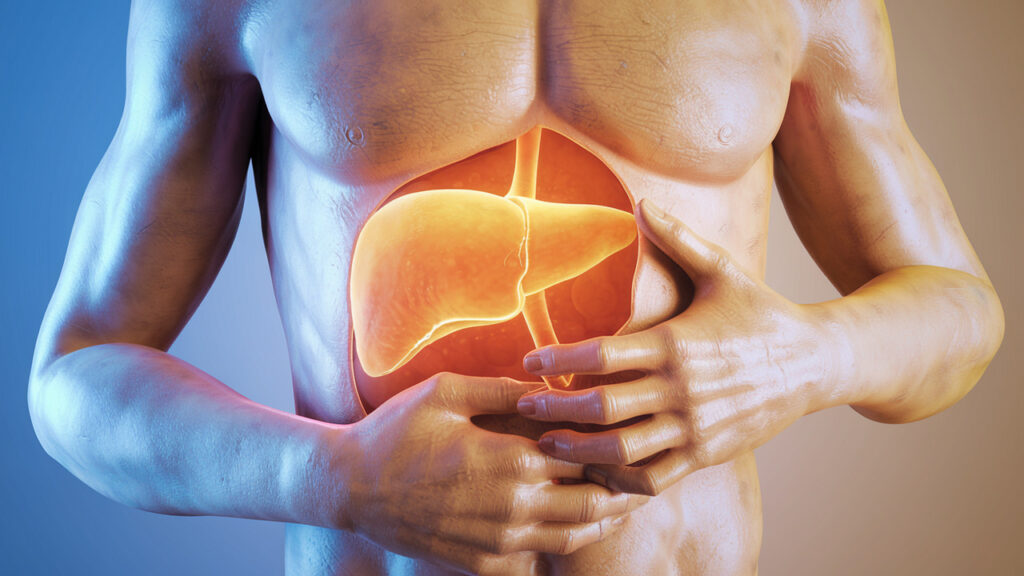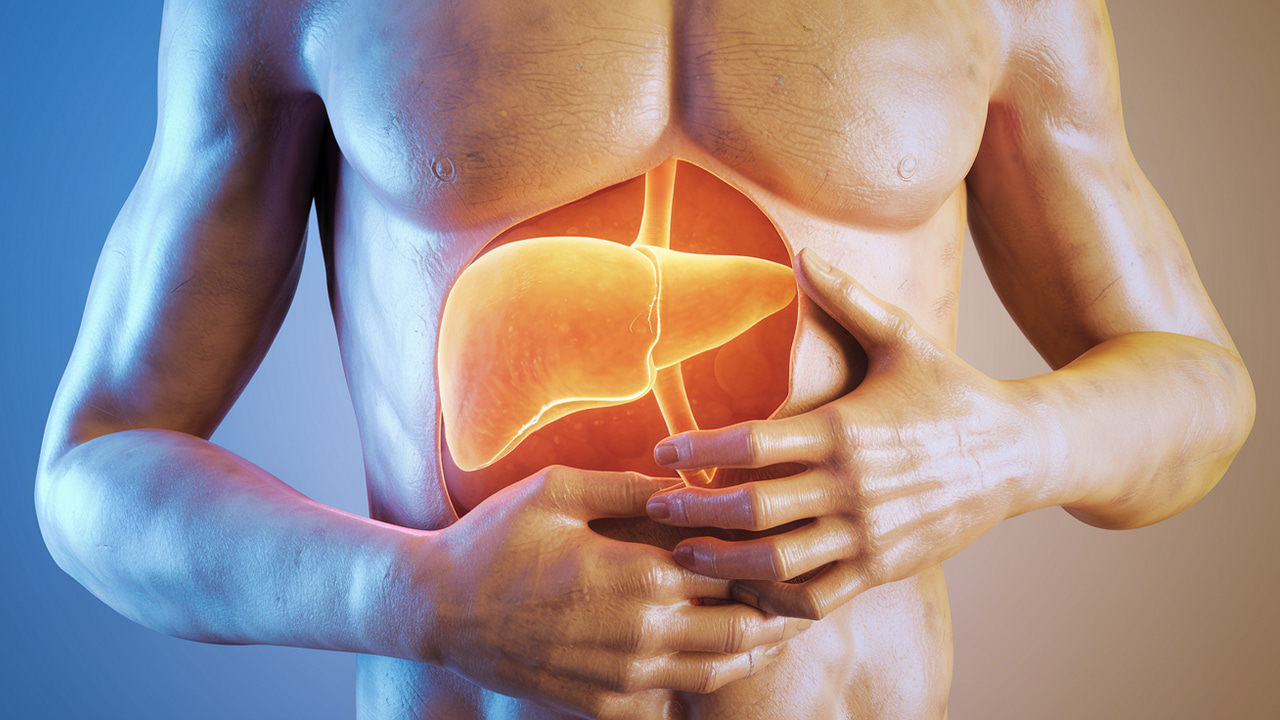What No One Tells You About Weight Gain and Liver Inflammation
If you’ve gained weight — especially around your belly — and nothing seems to work no matter how hard you try, you might be missing a hidden piece of the puzzle.
It’s not your willpower.
It’s not your age.
It’s likely liver inflammation.
This is something no one told me about until I experienced it myself. And once I understood it, my entire approach to weight loss changed.
Let me walk you through what I wish I had known years ago.

Table of Contents
What Is Liver Inflammation?
Liver inflammation happens when your liver becomes overloaded with toxins, sugar, processed fats, or stress. It may not cause pain right away, but inside, your liver starts struggling to do its job.
It slows down bile production. It struggles to metabolize fat. It starts storing toxins and even fat inside itself.
This isn’t just about alcohol or liver disease.
It’s about everyday inflammation that’s quietly blocking fat loss.
How Liver Inflammation Causes Weight Gain
Here’s how it works:
- Your liver regulates fat metabolism.
- When it’s inflamed, it can’t process fat efficiently.
- That fat starts getting stored — especially in the midsection.
- Inflammation also disrupts insulin and hormone levels, making your body even more prone to storing fat.
So if you’ve been cutting calories or working out hard and still gaining, it might not be your routine — it might be your liver.
The Hidden Signs You Might Be Dealing with Liver Inflammation
Here’s what I experienced before I even knew my liver was inflamed:
- Constant bloating, even after light meals
- Low energy that no amount of caffeine fixed
- Puffy face and hands in the morning
- Stubborn belly fat that wouldn’t budge
- Skin breakouts or dark under-eyes
- Cravings for sugar or salty snacks
These are all signs your body is trying to detox, but the liver is overwhelmed.
What Triggered My Inflammation Without Realizing It
I thought I was eating “healthy,” but I was still consuming:
- Refined carbs (crackers, protein bars with hidden sugars)
- Seed oils (like canola or soybean oil in dressings)
- Artificial sweeteners in “diet” snacks
- Tap water filled with trace chemicals
- Fragrance-loaded skincare and candles
It sounds harmless, but over time, these things build up and push your liver into survival mode.
Why Diets Didn’t Work — and Often Made It Worse
Every time I tried a restrictive diet, I was unknowingly making my liver’s job harder. Low-fat diets reduced my bile flow. High-protein diets increased ammonia buildup. Fasting too long made my blood sugar swing.
It wasn’t until I focused on reducing liver inflammation that the weight started coming off — without extremes.
How I Turned It Around: A Natural Approach to Healing
Instead of chasing another diet, I shifted my focus to healing. I started doing three things every day:
- Supporting my liver with the right nutrients
- Reducing the toxic load in my daily environment
- Using a liver-specific supplement that targets fat metabolism
The product that helped me the most was Hepatoburn — it’s built to cool down liver inflammation, help detox gently, and support fat breakdown.
What’s Inside Hepatoburn (And Why It Helped Me)
I looked at a lot of detox products before choosing this one. Most were just laxatives. Hepatoburn is different. It includes:
- Milk thistle – supports liver cell regeneration
- Chromium – balances blood sugar to reduce fat storage
- Dandelion root – reduces water retention and bloating
- Berberine – powerful for metabolism and insulin response
- Choline – helps break down liver fat
Check out the full formula here.
Real Results: What Happened After 30 Days
I didn’t change my entire life overnight. I kept my meals simple and whole. I drank water. I walked 20–30 minutes a day. And I took Hepatoburn in the morning.
By week 2, I felt less heavy.
By week 4, my jeans fit differently.
By week 6, I saw definition I hadn’t seen in years.
All without starving, overtraining, or feeling drained.
Liver Inflammation Is More Common Than You Think
You don’t have to be overweight, drink alcohol, or eat junk food to have it. Even stress alone can inflame the liver. Modern life is filled with triggers — and most people have no idea their liver is under pressure until symptoms show up.
That’s why this message matters.
How to Support Your Liver Starting Today
Here’s what I do now as part of my everyday life:
- Lemon water every morning
- Avoid seed oils and processed snacks
- Walk after meals
- Use clean skincare and household products
- Take Hepatoburn daily
- Eat leafy greens, beets, and healthy fats like avocado
Small choices. Big impact.
The Takeaway: You Can’t Burn Fat If the Liver’s Inflamed
If nothing else, remember this: Your liver is the switch for fat loss. When it’s inflamed, your body stores — not burns. Once you calm the inflammation and give your liver what it needs, your body starts working with you.
That’s what happened for me — and that’s what can happen for you too.
Here’s the daily supplement I still use today.
The Role of Estrogen and Liver Health
One thing I didn’t expect was how much hormones are tied to liver inflammation — especially estrogen. When your liver is inflamed, it can’t process excess estrogen properly. That hormonal buildup leads to more fat storage, mood swings, and even water retention. If you’ve felt “off” hormonally, the liver could be part of the reason.
Fatty Liver Isn’t Just a Medical Diagnosis — It’s a Warning Sign
You don’t need to be diagnosed with full-blown liver disease to be in danger. I had what’s known as non-alcoholic fatty liver symptoms — without realizing it. Mild fat buildup in the liver is still inflammation, and it still impacts fat-burning and overall health. It’s not just a clinical issue — it’s a real obstacle for millions of people trying to lose weight.
Why Bloating Was a Clue Something Was Wrong
For years I thought bloating was normal — part of aging or something I had to live with. But the truth is, constant bloating is often a digestive symptom of liver overload. When the liver can’t produce enough bile or eliminate toxins effectively, digestion slows down. Once I addressed the liver, the bloating faded.
I Was Eating “Healthy” But Still Inflammatory Foods
At one point, I was eating almond flour crackers, protein shakes, and low-fat yogurt daily. These sounded healthy, but were loaded with seed oils, gums, emulsifiers, and artificial sweeteners — all of which kept my liver inflamed. Once I cleaned that up, everything improved.
The Truth About Detox Teas and Quick Fixes
I wasted money on detox teas that made big promises but delivered nothing but stomach cramps. Real detox — the kind that actually supports your liver — requires nutrients, not deprivation. That’s why I stopped using gimmicks and started using targeted ingredients like those in Hepatoburn.
What Happens When the Liver Finally Gets Support
Something amazing happens when your liver is no longer inflamed:
- Digestion improves
- Fat starts breaking down
- Energy stabilizes
- Hormones level out
- Skin clears up
- Mental fog lifts
It’s like removing a block that’s been holding your whole system back. I experienced every one of those improvements firsthand — and it started with a decision to support my liver, daily.
Toxic Load Adds Up — Even from “Clean” Lifestyles
You don’t have to live off fast food to have an inflamed liver. Even people who eat mostly clean can be exposed to toxins through tap water, store-bought meats, plastics, candles, and cosmetics. Your liver never gets a break unless you intentionally reduce that toxic load. This shift alone made a noticeable difference for me.
Why Exercise Alone Didn’t Fix It
I was working out consistently — lifting weights, doing cardio, hitting 10,000 steps — and still holding onto fat. It was frustrating. But once I cooled liver inflammation, my body started responding to workouts the way it used to. I didn’t change the exercise — I just removed the internal block.
Stress Is a Silent Inflammation Trigger
Mental stress releases cortisol, which inflames the liver and spikes blood sugar. I learned that just managing stress with deep breathing, quiet time, and walks helped my liver reset. If you’re under constant pressure, even the perfect diet might not work unless you address stress too.
Not All Supplements Are Created Equal
There are thousands of supplements claiming to detox or burn fat. But most don’t address the liver-fat connection. What set Hepatoburn apart for me is that it was built with liver health and metabolism in mind, not just weight loss. That’s why I still use it daily.
You can learn more about it here.
The Emotional Weight of Constant Fatigue
Beyond the physical weight, liver inflammation brings emotional weight — the frustration of trying everything and seeing no change. The fatigue, brain fog, and slow digestion made me feel defeated. Healing my liver didn’t just change my body — it helped me feel hopeful again.
This Isn’t About Perfection — It’s About Awareness
You don’t need to be perfect. You just need to be aware of what your liver needs, and make small changes consistently. Whether you start with lemon water, cutting processed oils, or using a supplement like Hepatoburn, the important thing is starting.


One thought on “What No One Tells You About Weight Gain and Liver Inflammation”